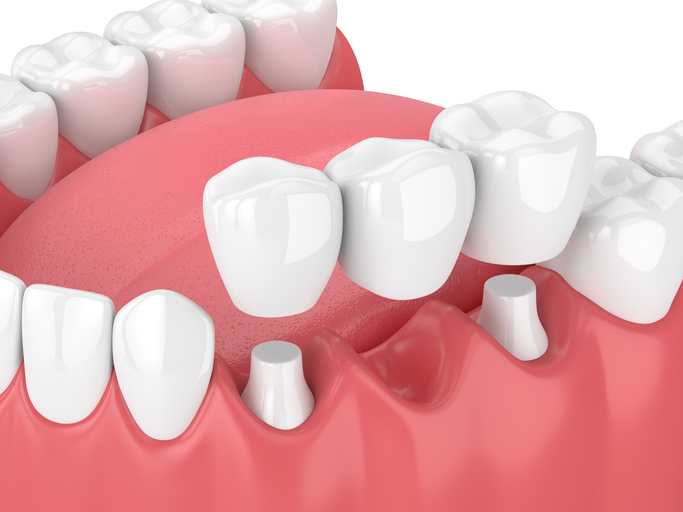
Have you ever considered the impact a complete, healthy smile could have on your life? Dental bridges are a time-tested solution in dentistry, aimed at addressing gaps caused by missing teeth. These gaps can affect more than just your smile; they can lead to difficulties in eating, speaking, and can cause other teeth to shift, leading to bite issues. Dental bridges not only restore the functionality of your teeth but also enhance the aesthetic appearance of your smile.
At North Royalton Family Dental, we understand the importance of a comprehensive approach to oral health. Dental bridges offer a transformative potential for those looking to improve their oral health and regain confidence in their smiles. Whether you’re experiencing tooth loss due to decay, injury, or periodontal disease, a dental bridge could be the key to restoring your oral harmony and aesthetics.
What Are Dental Bridges? An Overview
Dental bridges are prosthetic devices anchored onto existing teeth or dental implants to bridge the gap where one or more teeth may have been. The three main types of dental bridges are:
- Traditional Bridges: These are the most common type of bridges and are made by creating a dental crown for the tooth or implant on either side of the missing tooth, with a pontic in between.
- Cantilever Bridges: Used when there are adjacent teeth on only one side of the missing tooth.
- Maryland Bonded Bridges: Also known as a resin-bonded bridge or a Maryland bridge, these are made of porcelain, porcelain fused to metal, or plastic teeth and gums supported by a metal or porcelain framework.
These bridges can be crafted from a variety of materials including ceramic, porcelain fused to metal, or even gold. Each material offers different benefits in terms of aesthetics, strength, and durability. At our practice, we utilize high-quality materials to ensure that your dental bridge not only matches the natural look of your teeth but also functions effectively for a long time.
The Procedure: What to Expect When Getting Dental Bridges
The process of getting a dental bridge typically involves several steps, which may occur over multiple visits to our office at North Royalton Family Dental:
- Initial Consultation: Dr. Taylor will examine your teeth and discuss whether a dental bridge is the best option for you. This includes reviewing your dental and medical history.
- Preparation: The teeth adjacent to the gap will be prepared by recontouring these teeth and taking impressions, which serve as a model from which the bridge, pontic, and crowns will be made by a dental lab.
- Temporary Bridge: While your bridge is being crafted, you’ll wear a temporary bridge to protect the exposed teeth and gums.
- Fitting Your New Bridge: Once your permanent bridge is ready, you’ll have a fitting to ensure the fit and bite are perfect. Adjustments will be made as necessary.
During your visits, feel free to ask any questions regarding the procedure. It’s important for us to ensure that you feel comfortable and informed throughout the process.
Benefits of Dental Bridges
Dental bridges offer numerous benefits that extend beyond merely filling a gap in your smile. These include:
- Functional Benefits: Improved chewing efficiency and speech clarity are immediate benefits of replacing missing teeth with dental bridges.
- Aesthetic Improvements: Bridges are designed to match the natural color and shape of your existing teeth, enhancing your smile and facial aesthetics.
- Oral Health Benefits: By preventing the remaining teeth from drifting into empty spaces, dental bridges help maintain the integrity of your existing bite and jaw alignment.
Care and Maintenance of Dental Bridges
Maintaining a dental bridge is crucial for its longevity and for maintaining overall oral health. Here at North Royalton Family Dental, we emphasize the importance of proper care and maintenance to ensure that your dental bridge serves you well for many years. Here are some essential tips:
- Regular Brushing and Flossing: Just like your natural teeth, dental bridges require regular brushing and flossing. It’s important to brush at least twice a day and floss daily to remove plaque and prevent tooth decay and gum disease.
- Special Care Tools: Use tools such as floss threaders and water flossers to clean hard-to-reach areas around the bridge effectively.
- Routine Check-ups: Regular dental check-ups and cleanings are essential. Dr. Taylor and our dental team will check the condition of your bridge and perform professional cleanings to keep your entire mouth healthy.
Additionally, it’s wise to avoid chewing hard foods, ice, or other hard objects that could damage your bridge. Sticking to a balanced diet and avoiding sticky and sugary foods can also help preserve the structural integrity of your bridge and surrounding teeth.
Making the Decision for Dental Bridges
Choosing to get a dental bridge is an important decision that can significantly enhance the quality of your life. Throughout this discussion, we’ve highlighted the functional, aesthetic, and oral health benefits that dental bridges can provide. From improving your smile and bite to preventing future dental complications, the advantages of opting for a dental bridge are manifold.
If you’re considering dental bridges as a solution for missing teeth, we invite you to schedule a consultation with Dr. Taylor at North Royalton Family Dental. During your visit, we can discuss your specific needs and determine if dental bridges are the right choice for you. It’s not just about restoring a gap; it’s about restoring your confidence and functionality.
We are dedicated to providing you with personalized care and state-of-the-art dental solutions. Let us help you take the next step towards a healthier, more complete smile. Contact us today to learn more about dental bridges or to schedule your consultation. Together, we can achieve the smile transformation you’ve been hoping for — from gaps to glory!

